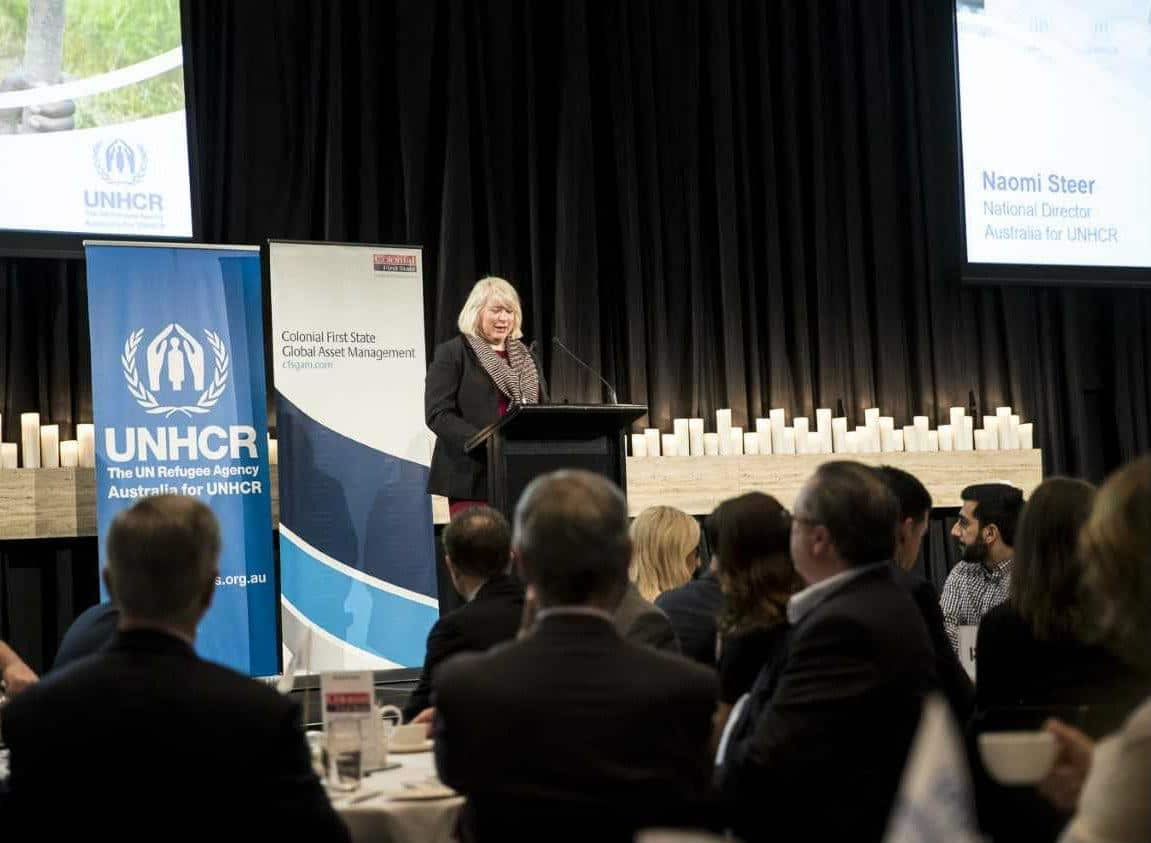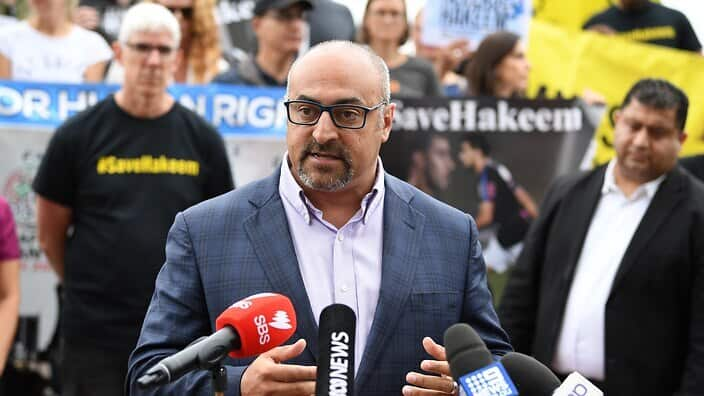Hala Nadar fled Syria in 2015 with a degree in civil engineering and completed one year as a graduate engineer in Iraq.
But she found this counted for little when she moved to Australia in April 2017 as a humanitarian entrant, along with her husband and young daughter.
“Life was difficult when we first arrived at Australia, and we realised that local experience is essential to get a job here in Australia,” she told SBS News.
But through the internship program CareerSeekers, she was able to secure a full-time job in her field.
A 12-week internship with construction company Lendlease led to a two-month contract and then a permanent position as an environmental and sustainable coordinator on a project to remove train level crossings in Melbourne.
“This just changed our life for the better,” she said.
World-first refugee conference
Getting refugees into work or further education will be a key focus of the United Nations Global Refugee Summit to be held in Geneva this week.
The first of its kind summit, beginning Tuesday, comes at the end of a tumultuous decade in which the number of refugees has risen to more than 25 million worldwide.
The forum will focus on six areas: arrangements for burden and responsibility-sharing, education, jobs and livelihoods, energy and infrastructure, solutions, and protection capacity.
Australia for UNHCR national director Naomi Steer said the new focus on economic inclusion was prompted by the increasing amount of time that displaced people were living without a permanent solution.
“People are living for many years, in fact in host communities, without often rights, access to health services, to work, to education,” she told SBS News.
Refugees spend an average of 17 years in exile before either returning to their country of origin or being permanently resettled. Just over 92,000 of the world’s 25.9 million refugees were resettled last year.
Ms Steer said the UNHCR had turned its attention from not only providing initial lifesaving humanitarian assistance to ensuring those years in exile were not wasted.
“If people are really going to have some future, some hope, we have to be meeting those longer-term needs also.”

Australia for UNHCR has recently opened a vocational training centre in Kyaka, western Uganda, which is home to 27,000 people from surrounding countries.
Ms Steer said Australia has a responsibility to help developing countries such as Lebanon, Jordan and Uganda, cope with the high number of refugees they host.
“If any of those refugees get the opportunity to be resettled to Australia or another country, at least they are coming here having been able to have had a tertiary or secondary education and developing skills and training.”
Ms Steer said the long period in limbo meant aid agencies could no longer rely solely on government funding and needed to form partnerships with the corporate sector.
Support of corporations needed
Corporations will be urged at the summit to commit to hiring refugees either in host countries or when they are resettled.
In 2019, Lendlease signed a partnership with CareerSeekers to include Australian humanitarian arrivals in its employment strategies.
Lendlease Engineering national manager Chris Bourne said the program helped boost diversity and address a skill shortage in the civil infrastructure industry.
“Our CareerSeeker alumni are some of the most dedicated and resilient people within our organisation, they are committed to their roles and determined to contribute positively to society,” Mr Bourne said.
Hala, who is responsible for reducing water waste and the environmental impact of the level crossing removal project, said she is learning every day.
“We struggled when we first arrived here but finding my professional identity at LendLease helped our family to settle in Australia,” she said.
'Fair-share agreement'
The federal government is revamping its resettlement services with a push to send more to people to Australia's regional areas.
In November, it upped its target of regional settlement to 50 per cent of humanitarian entrants and introduced a new position of Coordinator-General for Migrant Services.
But the government has refused calls to increase the cap on humanitarian entrants which was frozen this year at 18,750.
Last week, Labor backbencher Peter Khalil urged Australia to play a leading role at the Global Refugee Summit and broker a deal with multiple countries willing to lift their intake by hundreds of thousands of refugees.

In a speech at the Alfred Deakin Institute for Citizenship and Globalisation, Mr Khalil, the federal Labor member for Wills in Victoria, called for Australia to ditch its "fortress mentality" and lead a stronger international response to the "waves of mass migration that could well breach the gates".
He proposed a “fair share agreement” based on a negotiated formula which could take into account population, GDP per capita, geography, resettlement services available and historical refugee intake.
With Immigration Minister David Coleman on indefinite personal leave, it is unclear who Australia will be represented by at the Global Refugee Forum. The Department of Foreign Affairs and Trade did not respond to questions from SBS News.
Last week, a government spokesperson said Australia has one of the most "substantial refugee and humanitarian programs in the world".
"On a per-capita basis, our program is matched by very few other nations.
"Our refugee and humanitarian program is carefully managed, reflecting policy decisions of the Australian government. The government’s success in restoring secure borders has been fundamental to our successful management of the program."

